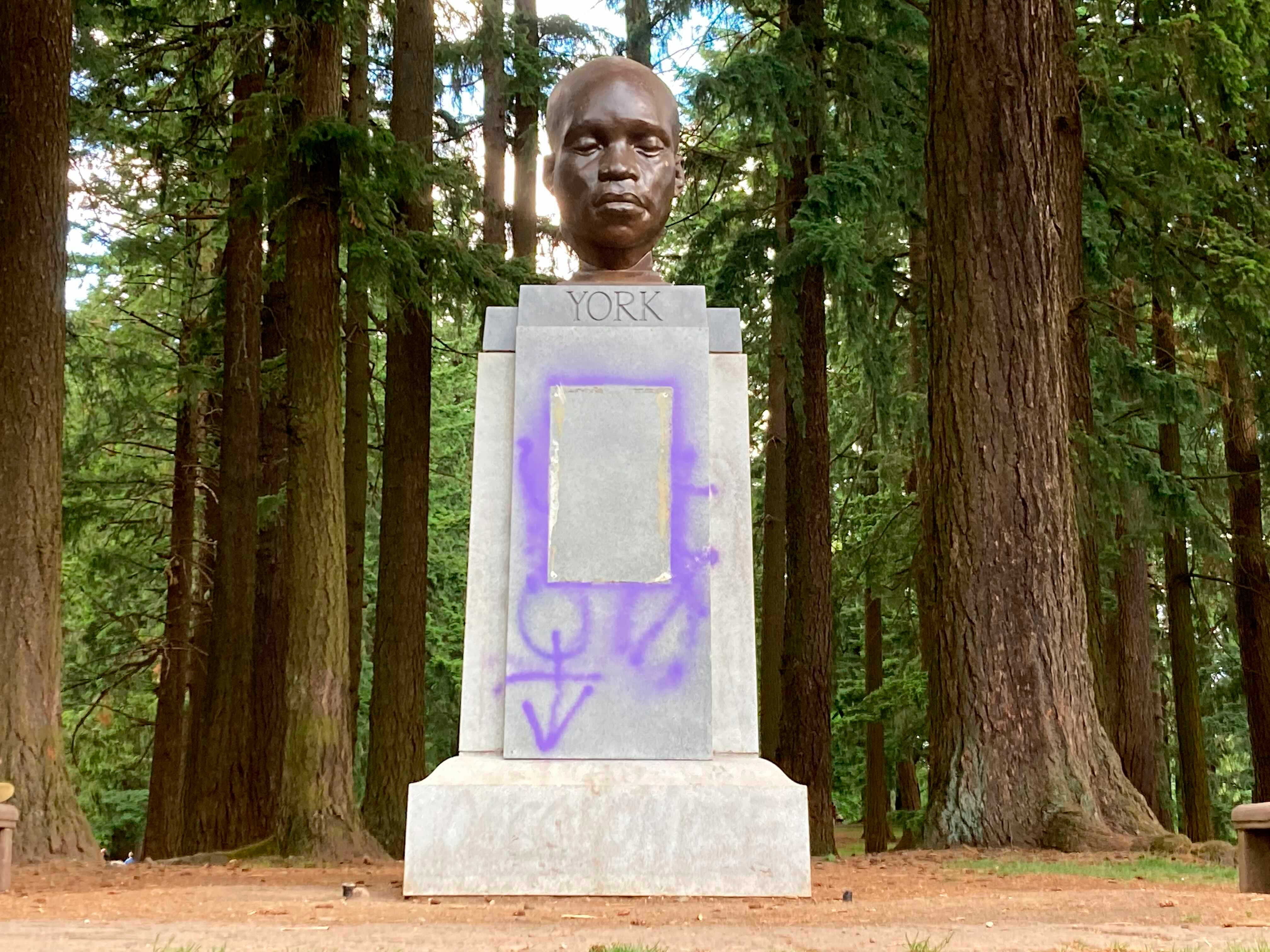Statue of Black hero of Lewis & Clark trip defaced in Oregon
A statue commemorating York, an enslaved Black member of the Lewis and Clark Expedition, was defaced this week in Portland, Oregon

Your support helps us to tell the story
From reproductive rights to climate change to Big Tech, The Independent is on the ground when the story is developing. Whether it's investigating the financials of Elon Musk's pro-Trump PAC or producing our latest documentary, 'The A Word', which shines a light on the American women fighting for reproductive rights, we know how important it is to parse out the facts from the messaging.
At such a critical moment in US history, we need reporters on the ground. Your donation allows us to keep sending journalists to speak to both sides of the story.
The Independent is trusted by Americans across the entire political spectrum. And unlike many other quality news outlets, we choose not to lock Americans out of our reporting and analysis with paywalls. We believe quality journalism should be available to everyone, paid for by those who can afford it.
Your support makes all the difference.A statue commemorating York an enslaved Black member of the Lewis and Clark Expedition, was defaced this week in Portland, Oregon.
The Oregonian/OregonLive reports that while the bust itself was unmarked, symbols and words, including “love not hate,” were spray-painted in purple lettering onto the gray pedestal underneath. A plaque describing York had also been spray-painted over and then removed, leaving behind a blank square framed in purple.
The bust mysteriously appeared in February on a pedestal in a park in Southeast Portland where a statue of Harvey Scott, a well-known conservative and longtime editor of The Oregonian who opposed women’s suffrage, stood until it was torn down. It still isn’t clear who created or placed the bust of York.
After the Lewis and Clark Expedition was over, everyone but York was rewarded with money and land. York demanded freedom as a reward for his services on the expedition, Historian Stephn Ambrose wrote. But Clark refused.
Clark later claimed to a friend that he’d freed York. Historians haven’t been able to verify that.